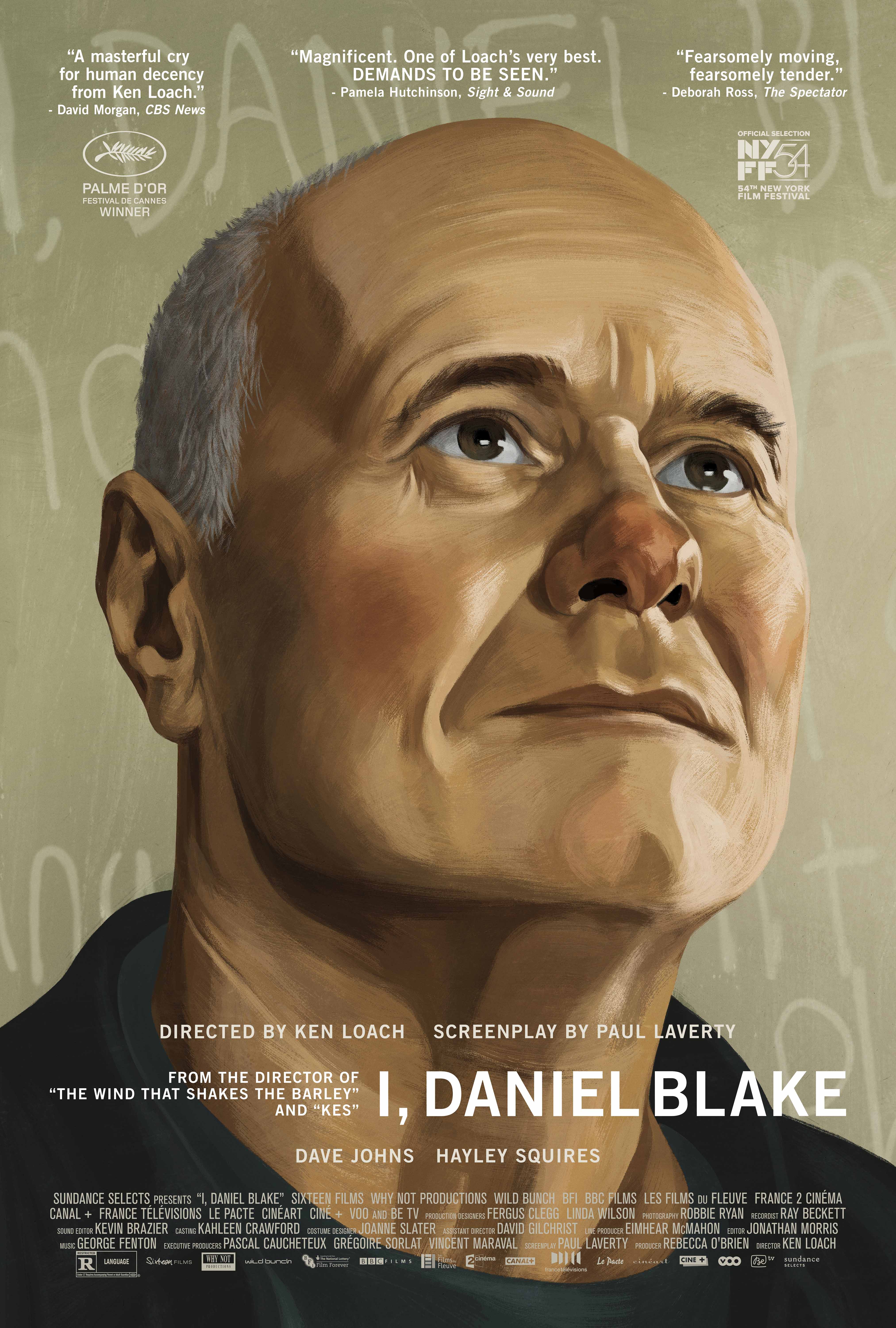Film Review: I, Daniel Blake (2017)


Ken Loach’s I, Daniel Blake is what Terry Gilliam’s Brazil (1985) might have been had it taken place in the contemporary and slightly more realistic world. The opening moments of the film consist simply of a conversation between the title character and a government worker in charge of determining whether he’s eligible for assistance after having a heart attack. It’s the first of many of these nearly infuriating exchanges and sets the tone of hopelessness and futility that is the backbone of the film. I half expected Robert DeNiro to pop out of an air duct to lighten the somber mood with an offer to circumvent the red tape. But, of course, I, Daniel Blake isn’t Brazil, even if the bureaucracy is as equally maddening.

Daniel Blake (Dave Johns) is an aging carpenter who has recently suffered a heart attack. He wants desperately to go back to work, but his doctor says he’s unfit. He also can’t get unemployment benefits without actively seeking a job—jobs his doctor has forbidden him from working. Do you see where this is going? It’s a clear-cut catch-22 that has the added benefit of coming with massive amounts of confusing paperwork and unsympathetic “professionals.”

The world the film inhabits is bleak, but what makes that even more poignant, is the knowledge that it’s the real world—the one we live in. The most heart-wrenching aspect of the film isn’t necessarily the things that happen to the characters, but that they could happen to any one of us with just a small amount of misfortune in our lives.
Bringing all this bleakness home are the performances by Dave Johns and Hayley Squires (playing a young single mother who Daniel befriends). In a rare treat, it’s possible to nearly forget that you’re watching actors. Their performances are deceptively nuanced, depicting fear, anger, and helplessness with simple facial expressions and mannerisms, rather than outright explosions of rage, chest beating, or Oscar-baiting. It’s very, very easy to feel for them.

The script by Paul Laverty and the direction by Loach are so deliberately and methodically paced that it feels like more like a portion of your very own day than a scene in a movie. Time is measured very carefully throughout, with pauses and beats that help us, as the viewer, feel the frustration of the characters as minutes and hours of their lives tick away at pointless formalities. It’s not a slow film, per se, but moves at a pace reminiscent of life and its potential minutiae.

These are honest, hard-working people who don’t want anything from anybody except to earn an honest wage. And, while obviously not an action movie, I, Daniel Blake has profoundly heroic moments. Not all heroes are alien robots, mutants, or whatever, and the victories may be much smaller when compared to saving the world, for example, but that doesn’t mean they are any less heroic or important. Strong willed, tough, working-class—and most of all real!—people are a hell of a lot more interesting than what we’re used to seeing from a “hero” these days. It’s refreshing if you ask me.

I, Daniel Blake is an emotional film (don’t let that scare you) that I feel anyone outside of the 1% will have no trouble identifying with. It’s not an easy film, however. I wouldn’t describe it as “feel good,” but it’s so damned down-to-earth and honest, with characters so likable and sympathetic, that you might be made of stone if you can’t feel for or relate to them on some level.
